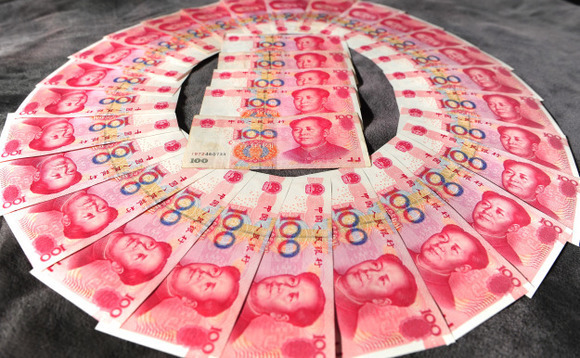
Foreign RMB funds suffer from LP access troubles

With state-backed firms hesitant to commit and wealthy individuals unreliable, overseas private equity firms face a long slog to raise their renminbi funds
There is no doubt that renminbi-denominated vehicles have been the architects of China's tremendous PE fundraising boom. Last year, local currency funds attracted more than $24 billion, twice the figure achieved by their US dollar counterparts. A total of 147 renminbi vehicles were raised to 27 US dollar vehicles.
This local currency party is being enjoyed predominantly by local players. For the last two years, the top 10 renminbi funds by capital raised have all been Chinese names. By comparison, fundraising efforts by the likes of The Blackstone Group, TPG Capital and The Carlyle Group, all of which are currently marketing their debut local currency vehicles, have been sluggish.
TPG last week announced a first close of RMB4 billion for its two renminbi funds, one based in Shanghai and the other in Chongqing. More than 18 months after launch, the vehicles have achieved 40% of their total fundraising target. It took Hony Capital barely 12 months to attract RMB10 billion for its second local currency fund, while CITIC Private Equity closed its Mianyang High Technology Industrial Investment Fund at RMB9 billion, 50% above the original target, after a year-and-a-half in the market.
Comparisons might be unfair given differences in the target LP base between local and foreign-backed operators.
"SOE LPs tend to invest in GPs with an SOE background, which is understandable as they share a similar corporate culture and decision making process," says JingJing Bai, a director at placement agent Eaton Partners Advisors.
"For global GPs, sometimes the ultimate investment decisions are still made at headquarters in the US or Europe, which may not offer enough comfort to local LPs, including SOEs. After the global financial crisis, Chinese LPs realized that large global brands don't necessarily last forever."
The LP balance
CITIC PE's Mianyang fund is a good example. More than 80% of the capital came from state-owned enterprises (SOEs), sources familiar with the fundraising tell AVCJ. The National Social Security Fund was the largest contributor, followed by a clutch of other state-owned players including China Life and State Grid Corp. of China.
In contrast, TPG said that 90% of the total raised so far for its renminbi funds came from private investors. The ratio is expected to drop - but still remain above 50% - on completion, which implies sizeable contributions from SOEs have yet to come. All the foreign funds are structured as partnerships with local government entities, so TPG might expect entities linked to the Shanghai and Chongqing governments to step in.
There is a strong local feel to the reported SOE LPs in the Blackstone and Carlyle renminbi funds, which are based in Shanghai and Beijing, respectively.
However, some question whether there are always sufficient incentives for SOE participation. "In the case of TPG, the personal network of Sing Wang, TPG's co-chairman for Greater China, has helped a lot in the fundraising. Otherwise, TPG won't be able make it," one LP tells AVCJ. "Only RMB300-500 million of these two funds has come from local governments, with the rest originating from private wealth."
The problem with relying on high net worth individuals (HNWIs) as LPs is uncertainty. These investors are generally quite immature and tend to be unfamiliar with the long-term commitments required in private equity. Since IPO exit multiples started to fall in Shenzhen, smaller renminbi funds have been hit by a wave of defaults as individual investors lose interest in the asset class.
"Individuals who want quick and high returns from pre-IPO deals are becoming more cautious because when stock markets are down, no GP has the magic wand to guarantee returns. Private equity capital is patient and this isn't suited to all individual investors." Eaton's Bai suggests.
York Chen, founding partner of ID Techventures, adds that competition from private loan markets has also impacted private equity. These loans command annual interest of 15-20% and returns come after 3-6 months, which compares favorably to private equity's typical 5-7 year horizon.
Fred Hu, founder of Primavera Capital Group and a former Greater China chairman at Goldman Sachs, agrees the renminbi fundraising environment is getting tough, especially when there are limited institutional LPs and many entrepreneurs tend to manage their own capital instead of entrusting with professional teams. "In any case, the macroeconomic tightening in China has probably reduced the supply of ‘excess' funds that might otherwise be available to PE funds," Hu adds.
Pragmatic approach
Morgan Stanley appears to have factored the nascent state of China's private equity industry into its fundraising plans, setting a target of RMB1.5 billion for its debut renminbi vehicle, well short of the RMB5 billion sought by its foreign rivals. Indeed, investment banks may find they have an edge over private equity firms when it comes to targeting HNWIs - Morgan Stanley means more to Chinese people than TPG or Carlyle.
"When Morgan Stanley was doing renminbi fundraising, they talked to some local rich guys for regarding a RMB100 million allocation," one source, unconnected with the bank but familiar with the fundraising process, tells AVCJ. "One of the guys just thought he was buying pre-IPO shares in Morgan Stanley. People simply trust the name."
The private equity firms can respond to this by relying on the networks of senior professionals such as TPG's Wang and Blackstone Greater China Chairman Antony Leung - or they can use private banking channels. While an individual investor might not know TPG or KKR, they know the likes of China Merchants Bank and China Everbright Bank.
In the long term, domestic insurance companies are expected to add variety to the LP mix, having received regulatory approval to making commitments to GPs. However, their activities will be subject to stringent conditions. Primavera's Hu notes that the process has been extremely time-consuming and unpredictable as it requires multiple approvals. "A more liberal regulatory regime on insurance funds could be very positive towards the development of the Chinese renminbi private equity sector, benefiting both local and overseas funds," he says.
With thorough reform of the LP base unlikely to happen any time soon, renminbi fundraising is certain to remain a challenge for foreign funds. But it isn't the end of the world. Although their primary objective is to make money, Carlyle and TPG surely also regard renminbi vehicles as marketing tools that will pay dividends once Chinese investors focus on PE opportunities overseas.
Meanwhile, local renminbi fund managers themselves are looking to diversify into more sustainable US dollar vehicles, which attract reliable and PE-savvy offshore investors. After all, there is has been no slowdown in foreign investors' desire to gain exposure to China's growth story.
"Some private LPs invested in real estate, having already committed to renminbi PE funds and so when GPs make a capital call, they can't provide the funds because the real estate investments can't be sold at the projected price," Eaton's Bai says. "The GPs won't sue them as they don't want to burn the bridges. It just becomes a headache during the economic slowdown."
SIDEBAR: RMB investments - Foreign or local?
One of the major reasons a foreign private equity firm sets up a renminbi fund is to avoid the regulatory restrictions applied to offshore investors.
According to China's revised foreign investment catalogue, there are still 38 industries in which overseas participation is prohibited, among them media, entertainment, transportation, electricity and chemicals. Private equity regulations state that any fund run by a foreign GP with Qualified Foreign Limited Partner (QFLP) status is only considered a pure renminbi vehicle if its entire corpus is raised locally. The GP's share, meanwhile, must also come from local sources and not exceed more than 5% of the total fund.
Failure to comply with these requirements means the vehicle is deemed a joint venture fund.
"Compared with foreign-invested funds, the pure RMB funds have many advantages to invest in Chinese companies," says Evan Zhang, counsel at Han Kun Law Offices. "Their investments are not restricted by the foreign investment catalogue, and the procedure for a portfolio company's A-share listing is simpler than that for a joint venture fund."
Limitations are also imposed on foreign-backed renminbi funds by their local government partners. TPG Capital says it will target companies all over China through its two funds, based in Shanghai and Chongqing, respectively. However, some industry participants note that such fund are often obliged to seek a certain number of investments within their locality.
According to one GP, foreign-backed funds based in Chongqing are required to invest 2-3 times government LP commitments to local companies.
"If 90% of TPG's fund comes from private wealth and 10% from government, it may need to invest 20% to 30% of its fund raised in Chongqing area," the GP explains. "These arrangements can cause problems as there may be limited investment opportunities that qualify."
Latest News
Asian GPs slow implementation of ESG policies - survey
Asia-based private equity firms are assigning more dedicated resources to environment, social, and governance (ESG) programmes, but policy changes have slowed in the past 12 months, in part due to concerns raised internally and by LPs, according to a...
Singapore fintech start-up LXA gets $10m seed round
New Enterprise Associates (NEA) has led a USD 10m seed round for Singapore’s LXA, a financial technology start-up launched by a former Asia senior executive at The Blackstone Group.
India's InCred announces $60m round, claims unicorn status
Indian non-bank lender InCred Financial Services said it has received INR 5bn (USD 60m) at a valuation of at least USD 1bn from unnamed investors including “a global private equity fund.”
Insight leads $50m round for Australia's Roller
Insight Partners has led a USD 50m round for Australia’s Roller, a venue management software provider specializing in family fun parks.





